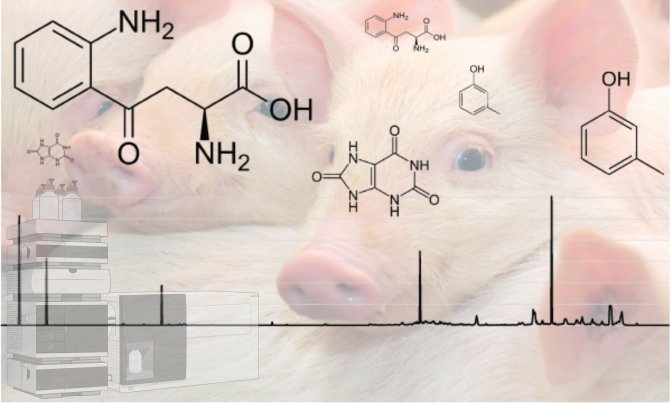
News
Potential of fecal metabolites as biomarkers for pig health
Sanitary conditions alter the composition of the microbiome in pigs. “The effect of sanitary conditions in relation to health status, confirms that those conditions determine the fecal metabolites in growing pigs. Some of these metabolites can potentially be used as ‘non-invasive’ biomarkers of the immune status of the animals”, says Dirkjan Schokker of Wageningen Bioveterinary Research based on a recent study.
Performance
The management conditions imposed on pigs, including sanitary status, affect the productivity, health, and welfare of pigs. Low sanitary conditions (LSC) activate the immune system, reduce growth performance and change nutrient and energy requirements compared to pigs raised under high sanitary conditions (HSC).
Biomarkers
Previous studies confirmed that sanitary conditions alter the composition of the microbiome in the colon. It was shown that this affected the metabolome in the colon and the metabolome in the blood of pigs of 13 weeks of age. Metabolic data are useful to investigate the relationships between health, metabolic status, and growth parameters. Such metabolite data could assist to identify biomarkers for (gut) health and performance. “Fecal biomarkers could help to monitor the effects of the sanitary and associated health status of pigs and thus support the implementation of interventions to prevent negative effects on productive performance”, explains Schokker. “Therefore, in this study, we measured fecal metabolite profiles in pigs reared in different sanitary conditions, including pigs being subjected to different vaccination regimes.” The pigs in the study aged from 14 to 22 weeks.
Metabolites
Pigs kept under low and high sanitary conditions differed in fecal metabolites related to the degradation of dietary starch, metabolism of the gut microbiome, and degradation of components of animal (host) origin. The metabolites that differed significantly were from metabolic processes involved in either immune system metabolism or maintaining nutrient digestive capacity, including purine metabolism, energy metabolism, bile acid breakdown and recycling. “The results show that the fecal metabolite profiles reflect the sanitary conditions under which the pigs are kept.”

Overall, fecal metabolite profiles provide a better understanding of the subclinical health status and physiology of pigs kept under different sanitary conditions, says Schokker. “The fecal metabolite profiles closely resembled the profiles of metabolites found in the colon of pigs. Fecal valerate and kynurenic acid for example can potentially be used as ‘non-invasive’ biomarkers for immune or inflammatory status.” The use of biomarkers could provide the basis for either monitoring subclinical health status in pigs or formulating targeted nutritional interventions aimed at (re)balancing the immune system in pigs.
Three Rs
“The discovery of ‘non-invasive’ biomarkers will not only help researchers measure the health status of animals, but also reduce the stress on animals, especially when biological samples, such as blood, are collected, which requires invasive procedures”, states Soumya Kar of Wageningen Livestock Research, the study's lead author.
According to Kar such discoveries and innovations corresponds ‘refinement’, one of the three Rs - Replacement, Reduction and Refinement - in animal experiments. “This underlines the intention of Wageningen University & Research to implement the 3Rs principles in its research and to support societal demands for 3Rs principles.”